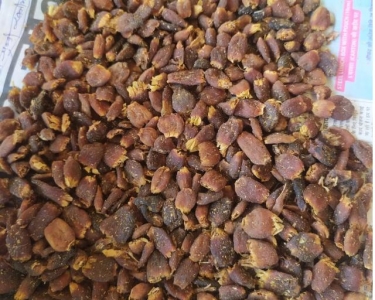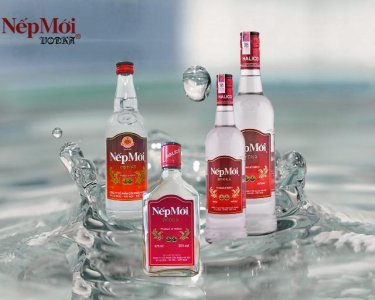Live animals
Couldn't find the product you want?
Fill out this form to request the product.
Products You May Like
Export from Turks and Caicos Islands
The Turks and Caicos Islands are a British Overseas Territory consisting of the larger Caicos Islands and smaller Turks Islands, two groups of tropical islands in the Lucayan Archipelago of the Atlantic Ocean and northern West Indies.
Despite the fact, that these islands are well known for their picturesque natural landscapes and well developed tourism, the country is one of the leading exporters in the Lucayan Archipelago.
The humid climate of the country does not allow to grow a large number of agricultural products. The soil is negatively influenced by the excess of rockiness. This allows the country export the limited types of agricultural products. The biggest income brings the export of maize, beans, cassava (tapioca) and citrus fruits.
Fishing is the significant export of the country. The local manufacturers sell lobsters, dried and fresh conch, and conch shells. In addition to this, the country exports fresh fish, frozen fish, molluscs, caviar, squid as well as coral calcium for international drugstores.
The government of the country is focused on attracting different international invests in order to develop the oil production on the country’s territory. The local manufacturers export refined petroleum and oil to the neighboring countries.
The top export destinations of the Turks and Caicos Islands are the United States, the Bahamas, Ethiopia, the Central African Republic and Ireland.
Import to Turks and Caicos Islands
The economy of the Turks and Caicos Islands relies on the tourism industry, real estate development and the exportation of seafood. A wide variety of financial services are available, including company formation, offshore insurance, banking, trusts, limited partnerships and limited life companies. The Financial Services Commission regulates, develops and promotes the industry in major world markets.
Despite the fact, that the country has a great trade potential, it suffers from the lack of the potable water. As on many Islands, the fresh water is precious as it depends upon rainfall or desalinated water produced by reverse osmosis for the supply.
The Turks and Caicos Islands imports potable water from The United States of America and Brazil.
The islands import food and beverages, such as: fruits, vegetables, beans and seeds. In addition to this, the country buys tobacco and tobacco substitutes, coffee and tea and other FMCG products.
Clothing and textiles, machinery and mechanical appliances, construction materials and engineering are primarily imported from the United States and the United Kingdom.
The top import origins are the United States, Brazil, Switzerland, Japan and the United Kingdom.
Check Out Export Portal: A Site That Lets You Export Live Animals
If you are looking to buy and export animals, then you came to the right place! Export Portal's Live Animals Department is an online marketplace for sellers and buyers of any livestock. We work to contribute to the live export industry, which brings many economic advantages and other benefits to countries that rely heavily on livestock imports. In fact, in just Australia alone, this industry contributes roughly $1.8 billion to the country's GDP each year. Moreover, it also ensures food security while helping people meet their protein needs as well.
Finding the Right Animal
We feature a wide range of pigs, cows, sheep, goats, horses, rabbits and hares, turkeys, bees, and fish for sale. An increasing number of American, Australian, German, South African, Argentinian, and Italian farmers and companies are advertising their livestock with Export Portal, portraying just how effective and helpful our site is.
To help customers make more informed purchasing decisions, our site lets users narrow down their searches by the age, breed, and sex of the animal. If you are feeling hesitant to shop on our site and want more detailed information, make sure to check out our seller ratings and reviews, which are written by our buyers and customers. We also collaborate with hundreds of trusted international shipping companies that arrange the transport of all kinds of animals and birds to any country in the world.
Online Shopping is More Simple with Export Portal
Export Portal is an ideal site for everyone who is an avid online shopper. Our convenient options make it easy to find and buy whatever you are looking for. Our seller network from all over the world has everything you need, and our customer support team will make sure you can find it. Our wide assortment of products will be sure to provide you with the best shopping experience. Make sure to check out our site and items today!
Customs requirements of Turks and Caicos Islands
Turks and Caicos Customs Department
Website: http://customs.gov.tc
Address: 67 Airport Road, Downtown, Providenciales, PO BOX 206
Phone: + 1-649-338-5493
Fax: + 1-649-946-4453
The Turks and Caicos Islands consist of 40 islands and cays, eight of which are inhabited. The islands are located 550 miles southeast of Miami, Florida, just below the Bahamas chain and just to the east of Cuba and the island of Hispaniola (Dominican Republic and Haiti.)
The Turks and Caicos Customs Department is responsible for Customs regulations in the country. In addition to this, this department has the following responsibilities:
- Collecting and protecting revenue;
- Preventing and interdicting illegal drugs and other prohibited and restricted goods;
- Facilitating legitimate trade and international travel through the use of modern business systems.
Tariffs
Live animals – duty rate is 0%;
Meat and meat products - duty rate is 0%;
Fish, molluscs and other sea food – duty rate is 15 – 40 %;
Dairy products (eggs, milk, natural honey and others) - duty rate is 10 – 15%;
Products of animal origin (hair, skins, bones, coral materials) - duty rate is 30 – 40%;
Vegetables - duty rate is 10%;
Fruits and nuts - duty rate is 0%;
Coffee, tea - duty rate is 15%;
Cereals - duty rate is 0%;
Milling products - duty rate is 0%;
Seeds and beans - duty rate is 30%;
Prepared foodstuff - duty rate is 15%;
Sugar - duty rate is 15%;
Cocoa - duty rate is 15%.
Documentation
Commercial Invoice
Two copies of the freight invoices in English are required. No specific form is required, but all invoices must contain the names of the exporter and consignee, number and types of packages, marks and numbers on the packages, net and gross weights, CIF value, terms of sale, and a thorough description of the merchandise. Note that the importer will usually need a signed duplicate invoice to speed the release of the imported goods from customs.
Certificate of Origin
Every importer or exporter has to prove the origin of the products buy preparing a Certificate of Origin. Two certified copies are required.
Packing List
A packing list is not legally required, but such lists are usually considered essential in accelerating the time required for customs clearance.
Bill of Lading (Air Waybill)
There are no regulations specifying content of a bill of lading. Importers should include clear marks of identification and the name and address of the consignee of the goods. Shipping marks on the goods must correspond exactly to numbers on bills of lading/invoices.
Pro-forma Invoice
Persons wishing to import goods are required to attach six copies of this invoice to the application for an import license and/or the intent to import. A pro-forma invoice may also be required when presenting an application to Turks and Caicos Islands authorities to ship bonded goods through the country.
Prohibited Products
- Banned weapons (including firearms and “Hawaiian slings”);
- Controlled drugs and narcotics, including (but not limited to) marijuana;
- Pornography and "obscene publications"
Sources
http://customs.gov.tc/currdoc/CustomTariffs%20(2010).pdf
https://www.visittci.com/travel-info/importing-animal-and-plant-products





